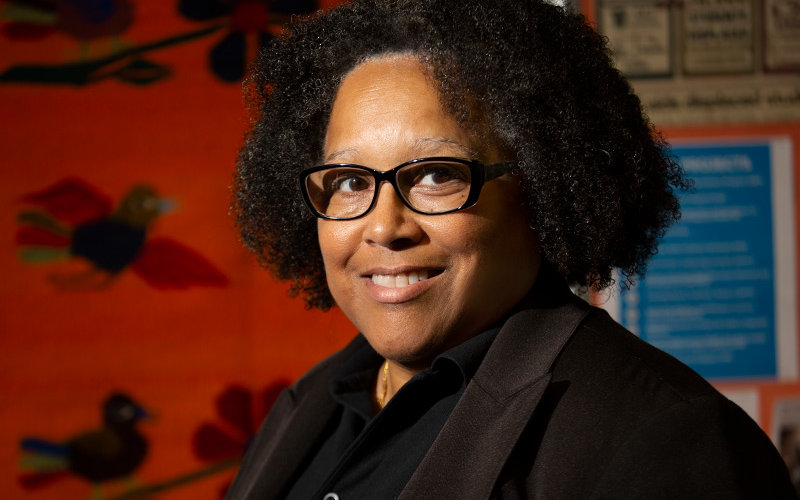
For the past decade, Cal State Fullerton’s Center for Research on Educational Access and Leadership was launched to develop a stronger research culture in the College of Education and to support the then-newly established doctor of education (Ed.D.) in educational leadership. At the same time, a generation of social justice-minded research scholars emerged to support educational change and transformation.
Dawn Person, professor of educational leadership, launched the center within the College of Education in 2008. Over the last 10 years, the center, known as C-REAL, has trained and prepared more than 100 students for advanced study in education and related fields, as well as for careers in educational research.
“Our student researchers are solution-focused with a social justice lens. Their commitment to research supports effective educational practices that are essential to solving today’s educational problems,” said Person, the center’s director. “Elevating marginalized communities and programs to support disenfranchised populations has been our focus.”
Many of the center’s research assistants have pursued master’s degrees and doctorates in higher education, psychology and related fields to serve in educational leadership roles in Orange County and beyond.
Education faculty members, students and alumni are celebrating the center’s 10th anniversary as part of Education Week Nov. 13-15. C-REAL anniversary activities also are planned for Nov. 16-18 to raise funds for the center’s programs, including the Dr. Jerry Hunter Student Travel Fund.
What are you most proud of?
The center and its research assistants have contributed to the assessment and evaluation of more than 50 educational projects, grants and programs — both on and off campus. Education faculty members, credential students, graduate students, as well as current students and alumni in the Ed.D program, have had the opportunity to perform cutting-edge research.
What are some of the research project highlights?
Some of the center’s projects have focused on men of color and community college success; college readiness; the arts in preschool through high school; gaming and learning; dual-language programs; student affairs’ effectiveness of services for veterans; instilling ‘Habit of Mind’ as a college intervention for student success; and, engaging more students of color and women in stem cell research and in allied health and environmental sciences. The center’s long-term contribution to the Maywood community has led to an annual education fair, presented by students in the master’s in education-higher education program, as well as journal publications, conference presentations, and 10 years of ongoing engagement with families, schools and the community.
How has the center been transformative in education?
Some examples include how the center helped the U.S. Department of Education address the closing of for-profit colleges — a public issue that affected many Californians. Students were disenfranchised as a result of this tragic situation, and the center was asked to partner with agencies in the state to respond. We designed, trained and equipped volunteer CSUF students and alumni to respond to affected students with accurate information concerning complex financial aid issues. Internationally, the center has contributed to the professionalization of student affairs in South Africa, trained English teachers in pedagogical inclusiveness and creativity in China, and has worked with educators in Australia, Russia and Cyprus on global higher education issues such as resiliency, effective pedagogical practices for diverse learners from primary to post-secondary schools.
What are the benefits for research assistants?
At the center, we prepare students to become learners, researchers and leaders. Our doctoral candidates gain skills in research and applications for best practices in educational settings, and they learn to work in a truly collaborative environment that is inclusive, and honors diversity of thought and perspectives. We develop students to be empathic, transformational leaders in their chosen field of study. We help them see the inequities in our educational system and seek to find solutions.